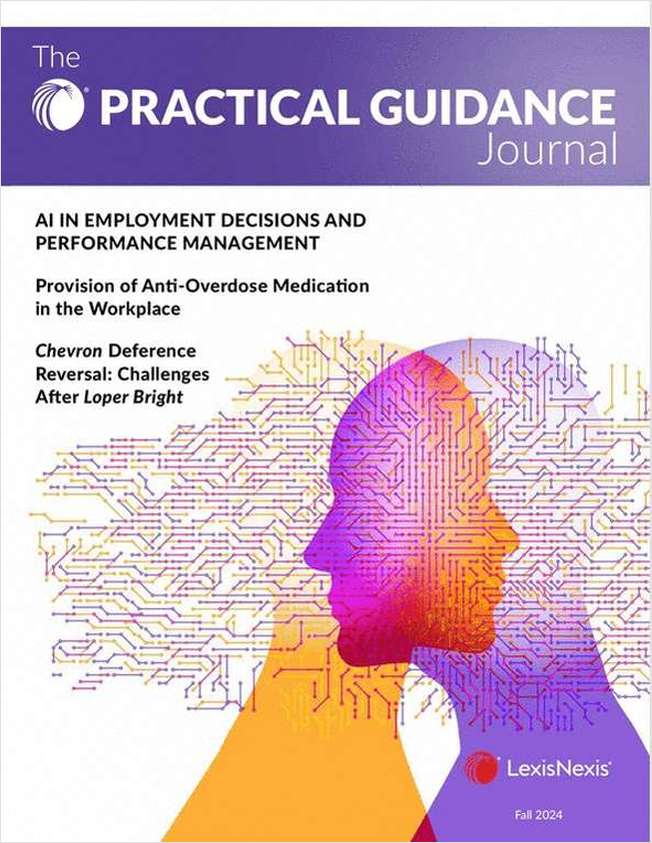 Thurgood Marshall U.S. Courthouse. Photo: Ryland West
Thurgood Marshall U.S. Courthouse. Photo: Ryland West2nd Circuit Revives Ex-Prisoner's 8th Amendment Claims Against Prison Staff
A Second Circuit panel said an inmate at Connecticut's Osborn Correctional Institution, had offered adequate support for Eighth Amendment claims that prison officials acted with "deliberate indifference" in ignoring his pleas for protection from a fellow inmate.
April 15, 2020 at 05:44 PM
4 minute read
The U.S. Court of Appeals for the Second Circuit has revived constitutional claims against a former Connecticut state prison warden and another official accused of failing to protect an inmate who was badly beaten under their watch.
A three-judge panel of the Manhattan-based appeals court said Wednesday that Lloyd George Morgan Jr., an inmate at Connecticut's Osborn Correctional Institution, had adequately demonstrated support for Eighth Amendment claims that Warden Carol Chapdelaine and Captain Kyle Godding had acted with "deliberate indifference" in ignoring his pleas for protection from a fellow inmate.
The ruling reversed an earlier decision by a Connecticut federal judge who in 2018 dismissed the case in its entirety, finding that the two officials lacked any "personal involvement" in the alleged missteps of their subordinates.
The Second Circuit, however, said that Morgan's pro se complaint had established that he had personally raised safety concerns with Chapdelaine and Godding multiple times before the January 2014 assault in the prison showers.
"Taken together, we find that Morgan raised a question of material fact as to whether 'a substantial risk of inmate attacks was longstanding, pervasive, well-documented, or expressly noted by prison officials in the past,' such that a trier of fact could find that Chapdelaine and Godding 'had actual knowledge of the risk,'" Circuit Judge Rosemary S. Pooler wrote in a 14-page opinion on behalf of the panel.
She was joined in the decision by Judges Guido Calabresi and Michael H. Park.
According to a 48-page handwritten complaint, filed in June 2014, Morgan had informed prison officials about violent gang activity while incarcerated at Carl Robinson Correctional Institution in 2013. He was then transferred to Osborn, where Morgan said he was particularly targeted by Gabriel Rodriguez, a fellow inmate, who said he would "snap" Morgan's neck for being a "snitch" and a homosexual.
Morgan, who was released from prison in 2017, said he submitted multiple reports to Chapdelaine and Godding detailing the threats. Though both officials acknowledged receiving the warnings, neither ultimately decided to take action, the complaint said.
U.S. District Judge Victor A. Bolden granted summary judgment against all 21 named employees of the Connecticut Department of Correction, and declined to exercise jurisdiction over the remaining state claims.
Bolden's decision with regard to Chapdelaine and Godding focused on the doctrine of supervisor liability, which generally insulates government officials from unconstitutional actions by their subordinates. But Pooler said Wednesday that the lower court's analysis was misguided because Morgan's multiple warnings had put the officials on notice that he faced an unreasonable risk to his safety.
"In response, Godding made dismissive remarks to Morgan, which Morgan relayed to Chapdelaine," Pooler wrote. "Chapdelaine ignored these requests for help. These actions reflect Chapdelaine and Godding's subjective awareness of, and deliberate indifference to, Morgan's specific, repeated, and urgent expressions of fear for his safety."
"Here, while Chapdelaine and Godding both held supervisory roles at Osborn, Morgan seeks to hold them liable only for acts that they themselves committed," she said.
The appeals court did, however, uphold the district court's ruling in favor of the other state defendants.
Sherwin Yoder, Morgan's court-appointed counsel and a partner at Carmody Torrance Sandak & Hennessey in Waterbury, Connecticut, was not immediately available to comment on the decision.
The Connecticut attorney general's office, which represents the named defendants, did not respond to an email Wednesday seeking comment on the ruling.
The case, which was remanded to the district court, is captioned Morgan v. Dzurenda.
READ MORE:
This content has been archived. It is available through our partners, LexisNexis® and Bloomberg Law.
To view this content, please continue to their sites.
Not a Lexis Subscriber?
Subscribe Now
Not a Bloomberg Law Subscriber?
Subscribe Now
NOT FOR REPRINT
© 2024 ALM Global, LLC, All Rights Reserved. Request academic re-use from www.copyright.com. All other uses, submit a request to [email protected]. For more information visit Asset & Logo Licensing.
You Might Like
View All


2 Lawyers Run for Fairfield Judgeship: Democrat Katherine Caulfield and Republican Daniel Ford
6 minute read
Law Firms Mentioned
Trending Stories
- 1The Law Firm Disrupted: Playing the Talent Game to Win
- 2Preparing Your Law Firm for 2025: Smart Ways to Embrace AI & Other Technologies
- 3GlaxoSmithKline Settles Most Zantac Lawsuits for $2.2B
- 4BD Settles Thousands of Bard Hernia Mesh Lawsuits
- 5Monsanto Moves to Pause PCB Trial That Starts This Week
Who Got The Work
Blank Rome partner Andrew T. Hambelton has stepped in to defend Fragrancenet.com in a pending trademark infringement lawsuit. The case, filed Aug. 29 in New York Southern District Court by the Blakely Law Group, targets the defendants for allegedly selling counterfeit fragrance products. The case, assigned to U.S. District Judge Lorna G. Schofield, is 1:24-cv-06521, Abercrombie & Fitch Trading Co. v. Quester (US) Enterprises, Inc. et al.
Who Got The Work
Davis Polk & Wardwell partners Mari Grace and Edmund Polubinski III have entered appearances for Australia-based Bitcoin-mining company Iris Energy and other defendants in a pending securities class action. The action, filed Oct. 7 in New York Eastern District Court by the Rosen Law Firm, contends that the defendants concealed the inadequacy of the company's site in Childress County, Texas, including it being 'ill-equipped' and unable to operate the company's proprietary design. The case, assigned to U.S. District Judge Peggy Kuo, is 1:24-cv-07046, Williams-Israel v. Iris Energy Limited et al.
Who Got The Work
Ryan S. Stippich of Reinhart Boerner Van Deuren has entered an appearance for biopharmaceutical company Veru Inc. and other defendants in a pending shareholder derivative lawsuit. The action, filed Sept. 30 in Wisconsin Western District Court by the Brown Law Firm on behalf of June Ovadias, accuses the defendant of failing to disclose that small sample sizes and other issues rendered it unlikely that the FDA would grant Emergency Use Authorization for the cancer drug candidate sabizabulin as a potential treatment for COVID-19. The case, assigned to U.S. District Judge William M. Conley, is 3:24-cv-00676, Ovadias, June v. Steiner, Mitchell et al.
Who Got The Work
Holland & Knight partners Cynthia A. Gierhart and Thomas Willcox Brooke have entered appearances for Pakistani American Political Action Committee and Rao Kamran Ali in a pending trademark infringement lawsuit. The action, filed Sept. 24 in District of Columbia District Court by Jackson Walker on behalf of Pakistani American Public Affairs Committee, accuses the defendants of using a mark that's confusingly similar to the plaintiff's 'Pak-Pac' marks without authorization. The case, assigned to U.S. District Judge Randolph D. Moss, is 1:24-cv-02727, Pakistani American Public Affairs Committee v. Pakistani American Political Action Committee et al.
Who Got The Work
Lauren M. Rosenberg and Yonatan Even of Cravath, Swaine & Moore have stepped in to represent Israel-based Oddity Tech Ltd. in a pending securities class action. The case, filed Aug. 30 in New York Southern District Court by Pomerantz LLP and Holzer & Holzer, contends that the defendant made materially misleading statements regarding the capability of Oddity's AI technology and ongoing civil litigation, resulting in the artifical inflation of the market price of Oddity's securities. The case, assigned to U.S. District Judge Margaret M. Garnett, is 1:24-cv-06571, Hoare v. Oddity Tech Ltd. et al.
Featured Firms
Law Offices of Gary Martin Hays & Associates, P.C.
(470) 294-1674
Law Offices of Mark E. Salomone
(857) 444-6468
Smith & Hassler
(713) 739-1250










